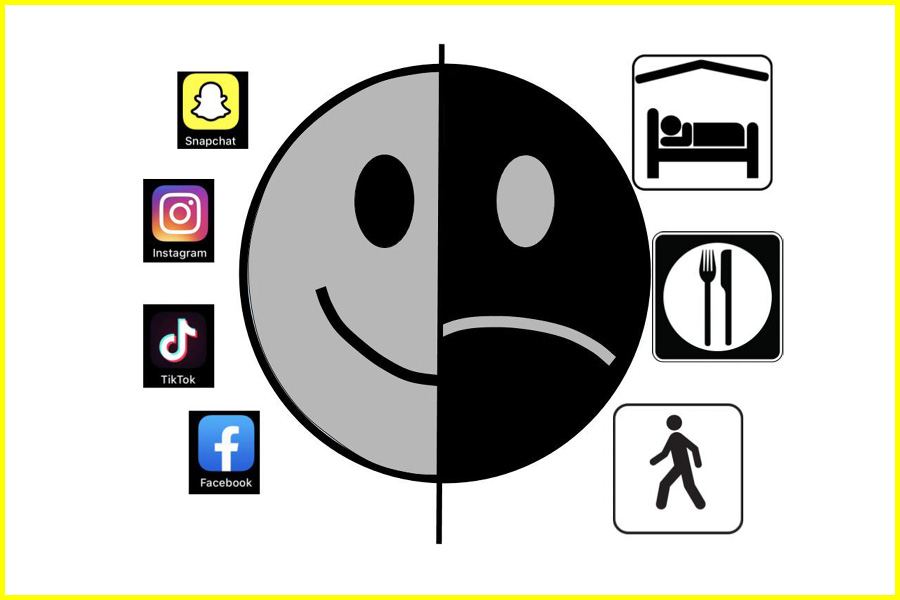Our Online and Offline Personalities: Why They Can’t Be Separate
November 14, 2019
How do people changing their personalities online affect who they are in real life? Can this affect their mental health?
People spend a lot of time carefully creating their online personas, according to Ben Halpert, founder of the nonprofit organization Savvy Cyber Kids. They choose which parts of themselves they think their friends, family, and others should see.
The images and words that people post are created by them, and those posts are then consumed by others. Everyone’s social media persona is able to shape the way others perceive and treat them.
Clara Dollar, in her New York Times article “My So-Called (Instagram) Life,” writes about meeting someone for the first time who believed he really knew her from her online persona: “[H]e knew the caricature of me that I had created and meticulously cultivated.”
People spend years building their online presence, and ultimately that image becomes someone separate from themselves, a person they don’t recognize.
“This new identity that they create not only changes who they are online but changes who they are in their real lives,” says Tomas Chamarro-Premuzic, in his Guardian article, “How different are your online and offline personalities?” The way people talk in their captions tells others what kind of person they are, both online and offline.
How does the person we create online affect us in real life?
When people change who they are online, they become a person with walls but no door, someone who hides who they really are. But the online personality created forces them into a year-round mask.
According to sociologist Koyel Bandyopadhyay in her Huff Post article “Does your social media personality reflect the real you?” both online and offline behavior are real. The online person that is carefully established bleeds into the person they are in the real world. Whoever is created online changes the way we act toward others and even toward ourselves.
“Several studies have indicated that the prolonged use of social networking sites…may be related to signs and symptoms of depression,” says Igor Pantic in his study “Online Social Networking and Mental Health” on Cyberpsychology, Behavior and Social Networking. He adds that certain activities on social networking sites “might be associated with low self-esteem.”
Is there a way to show more of our true selves?
Our behavior changes based on the type of audience we have. Everyone constantly creates and re-creates themselves, online and offline, unconsciously and consciously.
According to Nathalie Lussier, the founder of a tech startup, people should not hide their true selves online. They should allow some of their insecurities to show; they should allow themselves to be vulnerable, both on social media and in the real world. “By showing that you’re a real human being, you have a family, you share personal stories, and allow people to see your unpolished sides, too,” Lussier writes on her website.
People have to allow themselves to be seen, Lussier writes. Not everything people post on social media should be filtered to fit the “theme” of their account profile or how they want people to perceive them. People should show that they don’t always have to be perfect or have a perfect life. There shouldn’t always be a need to dress up to post a picture.
Rae Jackson, in her article “Social Media and Self-Doubt” on Child Mind Institute, says, “For kids experiencing anxiety or depression, carefully edited feeds can act as a smokescreen, masking serious issues behind pretend perfection and making it harder for parents or friends to see that they need help.”


